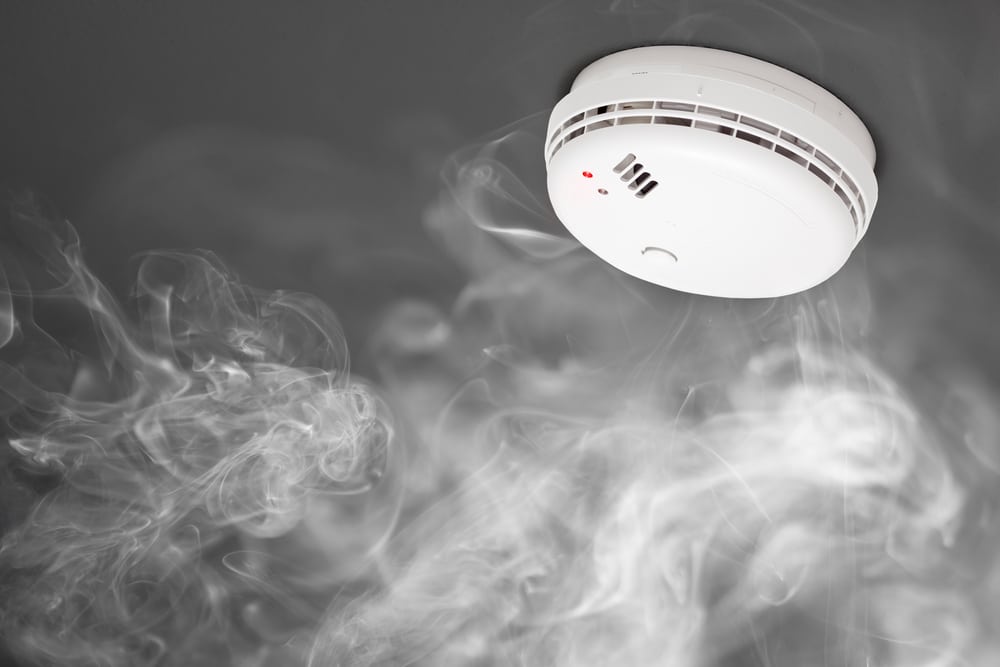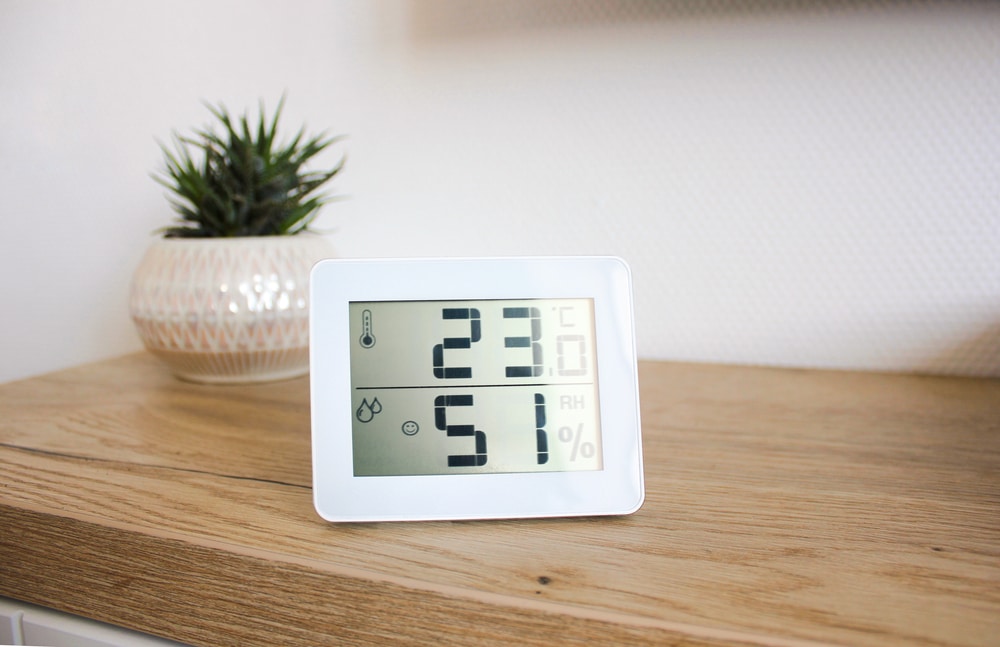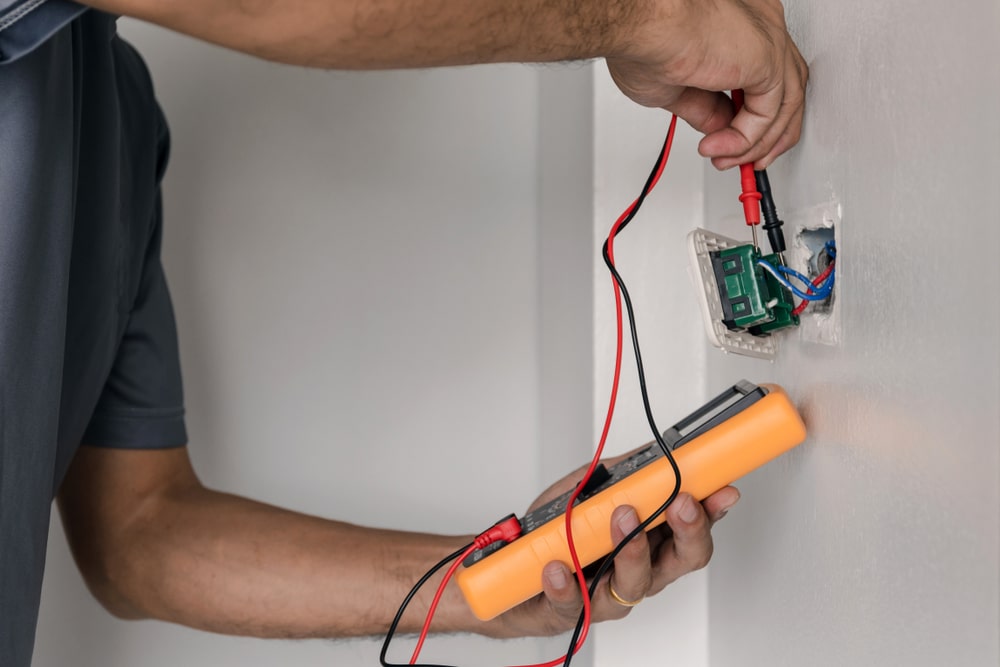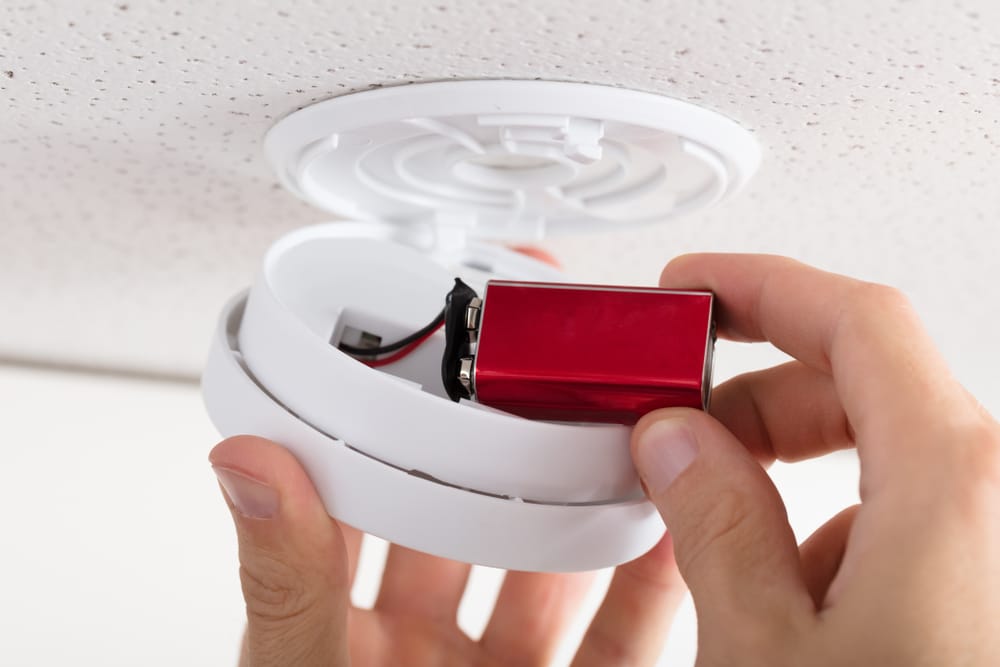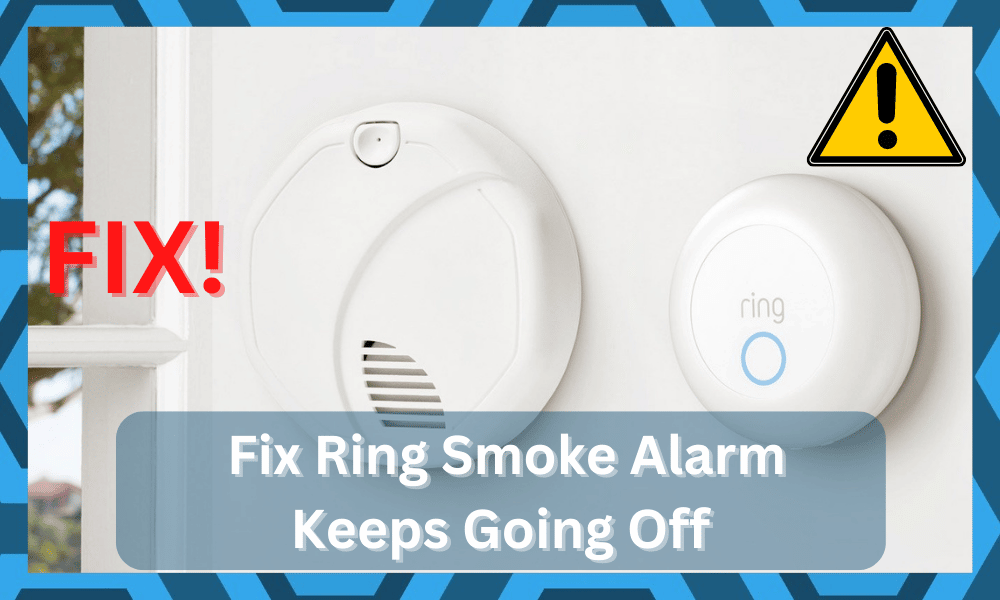
Smoke alarms are incredibly important to have in your home, especially if you have children or pets living in the residence.
However, as with any piece of technology, smoke alarms can malfunction from time to time, and at other times will simply begin to wear out from use over time.
Ring Smoke Alarm Keeps Going Off
Did you find notice that your smoke alarm seems to go off even when there isn’t actually a fire present?
This guide will help walk you through the steps to troubleshooting the problem so it can be resolved quickly and effectively before someone gets hurt or killed.
- Ensure There’s No Fire
If you don’t see any signs of fire, your smoke alarms could be triggered by cooking, steam or cigarette smoke. Try one of the following steps:
- Move your stovetop away from the wall
- Keep your kitchen windows open while cooking and leave them closed when finished -Clean your exhaust fans regularly
- Never use oven cleaners near your home ‘s smoke detectors
- Check your doors and windows for drafts
- Make sure vents are not blocked by furniture or other objects
- Unplug all small appliances before cleaning
- Replace batteries in all of your smoke alarms at least twice a year
- Charge Left Over After Use
If you’re using an electric stove, check the back of your stove. If there’s an electric panel on the wall behind it, make sure it’s turned off.
This could be causing your smoke alarm to go off because of the heat from the stove.
Check the battery in your smoke detector. Ensure the batteries are fresh and still have some charge left after use.
Turn the stove off and wait 10 minutes for it to cool down before turning it back on again, or move away from the kitchen for a while until the alarm stops sounding.
You may need to replace the battery in your smoke detector if it continues to go off with no reason.
To test if it was caused by cooking, try cooking something without letting any smell escape
if this fixes the issue then it will most likely just be one instance of hot food wafting over into the vicinity of the alarm and setting it off as soon as someone enters into its path.
- Temperature Or Humidity Might Be Causing It
The first thing to check is the temperature in your home. Ideally, the temperature should be between 62- and 72-degrees Fahrenheit.
If your house isn’t at this range, turn on you’re heating or air conditioning until it is. You can also open up windows for ventilation as well.
If you have pets, you may want to try removing them from the room if they are there with you because pets can cause false alarms.
Be sure to take out any smelly clothes, plants, or food too. Last but not least, check to see if you need new batteries!
- End Of Device Life
If the device has been in use for 10 years, it may be time to replace the battery. The device will continue to sound an alarm as long as the battery has power.
If the battery is exhausted and there are no power interruptions, then it may be time for replacement.
Start by checking the alarm panel which should display green lights indicating normal operation if everything is working properly.
If this does not resolve the issue, proceed with replacing the battery or visit our website for more information about how to troubleshoot your smoke detector.
If the smoke alarms are still sounding after changing out the batteries, review these suggestions for possible causes of malfunction:
- Faulty circuit board
- Resetting your fire alarm system may solve any problems caused by the circuit board. However, if resetting doesn’t work then you’ll need to replace it.
- Exhausted lithium battery
- Place new lithium batteries into both of your smoke detectors and they should start functioning again without any issues.
- Check Wiring
When your smoke detector is sounding because of electrical wiring, check the following:
- Check for loose connections in the house. If you find any, tighten them with a screwdriver or pliers.
- Check for any exposed wires and cover them with insulation or electrical tape.
- Check to make sure the wire is not in contact with water or snow (if there’s a possibility).
- Try replacing the battery if it’s more than ten years old.
- Try checking your firewalls in case they’re malfunctioning.
- Use an AC voltage tester on the power line that feeds into the house. Your readings should be between 115 VAC and 130 VAC.
- Have your circuit breaker checked by an electrician if nothing else works after trying all these tips.
- Replace Batteries
It is possible the batteries are low on power and need replacing. To verify this, remove the batteries from the smoke detector.
If it continues to beep, replace them with new ones, and if not, then you may have a faulty battery or some other issue.
- Check for any trouble areas in the home
There could be a fire nearby (if you hear alarms sounding) or there could be something sparking near your smoke detector.
Check for anything around your device that could cause an issue such as poor wiring, too many appliances running at once (such as vacuum cleaners), drafts blowing in from windows/doors, etc.
- Replace Components
Some components inside your smoke alarm might need to be replaced over time, especially after exposure to extreme temperatures like extreme heat and freezing weather conditions.
- See If You Can Move It
The first step in troubleshooting is to move the device away from the source of the problem and see if it still goes off.
If the smoke detector is near an open window or door, try closing it and see if that stops the beeping.
Smoke can enter through these openings and set off the alarms. Similarly, if there are any vents near by, try moving them away as well.
The third option is to detach any additional devices (such as detectors) around your home and see if they still go off.
